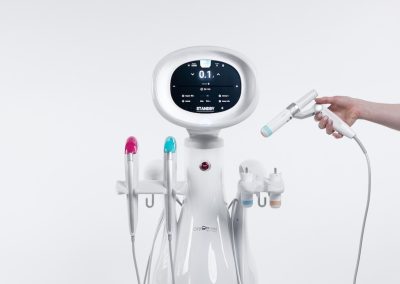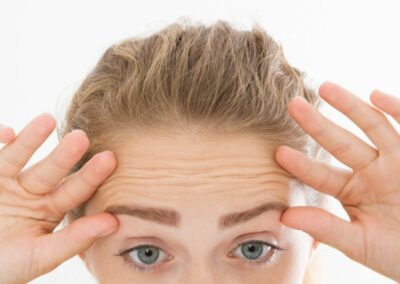Some women report experiencing feelings of depression and anxiety due to hormone changes during perimenopause and menopause.
Emotions can swing from joy, to frustration and annoyance in the blink of an eye.
Our emotional wellbeing and menopausal syptoms can be linked to hormonal changes. This can cause us to have wildly changing emotions, with feelings of insecurity, our moods swinging from joy one moment to anger and irritability the next.
It is important to pay attention to your emotions and consider how you are really feeling.
These changes may only be a small part of the cause of the depressed mood and anxious feelings women can experience around perimenopause and or early menopause.
Being aware of what is a menopausal symptom and what are ‘true’ mood changes, depression or anxiety can be confusing.

Women often report that their anxiety symptoms get worse with perimenopause. What might start as a hot flush can sometimes lead to an anxiety attack.
In turn, the symptoms of menopause, such as hot flushes and night sweats, can affect mood and make some women feel depressed. After being kept awake at night because of night sweats and uncomfortably tight or irritated skin, they are exhausted, can’t think clearly and feel down and often sad because they have had a poor quality sleep.
Women who experience depression or a depressed mood around the time of expected menopause (51-52 years in Australia), can often times be experiencing symptoms of an underlying issues :
- prior episodes of depression
- significant stress in your life
- dissatisfaction with your relationships
- low self-esteem
- poor body image
- poor lifestyle such as little exercise or a high intake of alcohol.
Some women perceive menopause and midlife as stressful experiences. You might feel like you have lost yourself, and your very purpose is hard to clarify. You might not be as sure of what to expect from your body or your emotions. What seemed like a body you could rely on and trust is now breaking out in a sweat at times you can’t predict.
Your own experience with emotinal wellbeing and menopause will depend on many things, including:
- Age
- Stage of life, whether you have done the things you wanted to, such as have children.
- Mental health, whether you have been depressed or anxious in the past.
- Whether you have achieved the things you wanted to achieve, do you have an identity and purpose you are happy with?
- How you view your body and feel about the changes that are happening to you.
- Are you as healthy as you can be and are you taking care of yourself.

If you are troubled by strong fluctuating emotions, you need to ask yourself:
- What is the real cause of my feelings?
- What is the real feeling?
- Am I masking a feeling that I feel uncomfortable expressing?
If you are experiencing feelings of depression and or anxiety while going through menopausal symptoms there are many positive things, you can do. These steps can help to alleviate these symptoms and help you to feel so much better.
Here are some practical ways to help you cope with feelings of depression and or anxiety.
Try to understand the symptoms you are experiencing – Keep a diary, this can help you identify what is a menopausal symptom and what is more likely to be a symptom of anxiety and/or depression.
Take time out for yourself and be kind to yourself – Do this so you have the emotional energy to do other things you need to do.
Get quality rest if you can – Fatigue can make you more prone to anxiety.
Get moving – Activity can help with mood as much as it can help with physical health.
Recognise the things in your life that recharge you and try to make them a part of your everyday routine – A deep relaxing breath or a walk with a friend, sitting in the park or in the garden, a movie, a relaxing bubble bath, facial or manicure, these are just a few suggestions.
Learn and practise relaxation – This can help reduce the impact of stress in your life.
Think about your inner voice – What messages is it sending?
- If your inner voice is overly critical, demands perfection, is depressed or anxious, you can feel bad about yourself.
- Challenging the negative inner voice is important.
- You might find positive affirmations can be helpful, such as “I can do this”.
- Come up with an affirmation that means something to you.
Do a regular emotional audit –
- Is there an issue that has been on your mind?
- Do you have a plan to do something about it?
- Take time out to think about what’s going on in your life and how you can best manage it.

Mindfulness
Mindfulness training teaches you to focus on the present moment and not get so caught up in your thinking. It is also important to reduce stressors, as these can set off anxiety and depression. Mindfulness is a clinically proven technique that can be learned and incorporated into your daily life to help manage anxiety and improve your emotional wellbeing.
Relaxation
Relaxation is a skill that needs to be learned. There are different techniques that can help you to relax and knowing the one that suits you is best.
Other therapies
First, see your doctor or health professional to discuss what therapy or therapies might be most suitable for you.
Check out our comprehensive library of Anti-Ageing blogs and Vlogs https://ageamazingly.com.au/health-and-nutrition/













0 Comments